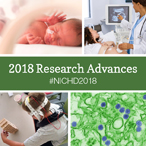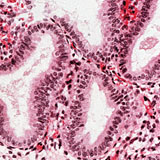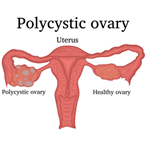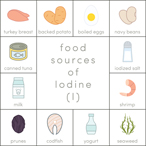As 2018 winds down, a new slideshow highlights a selection of initiatives, therapies, and scientific advances supported by NIH’s Eunice Kennedy Shriver National Institute of Child Health and Human Development (NICHD).
News
NICHD issues News Releases and Media Advisories to the news media. Spotlight and Research Feature articles explain NICHD research findings and public health issues to the general public. An Item of Interest is a short announcement of relevant information, such as a notable staff change.
Spotlight: Selected NICHD Research Advances of 2018
In 2018, researchers funded by NICHD made significant progress in advancing the health and well-being of infants, children, teenagers, and adults across the United States and around the world.
Podcast: Infertility: Men’s Health
Dr. Enrique Schisterman, Chief of the Epidemiology Branch shares his personal struggle with infertility, which led him to dedicate a research career focusing on ways to help couples boost fertility.
Science Update: Diets low in certain minerals linked to problem with ovulation
Insufficient sodium or manganese increases risk, NIH study suggests
Spotlight: What to Know About Endometriosis
Understanding endometriosis, causes and treatment, is part of NICHD’s mission. Learn more about signs and symptoms.
Science Update: Restoring gut microbiome may help women with polycystic ovary syndrome, suggests NIH study
Hormonal changes in women with polycystic ovary syndrome (PCOS), a common condition that contributes to infertility, may alter their intestinal microbe populations, according to an NICHD-funded study.
News Release: Iodine deficiency may reduce pregnancy chances, NIH study suggests
Women with moderate to severe iodine deficiency may take longer to achieve a pregnancy, compared to women with normal iodine levels, according to a study by researchers at the National Institutes of Health.
Spotlight: Selected NICHD Research Advances of 2017
Over the past year, NICHD contributed to numerous scientific advances and key initiatives.
Ovarian reserve tests fail to predict fertility, NIH-funded study suggests
Tests that estimate ovarian reserve, or the number of a woman’s remaining eggs, before menopause, do not appear to predict short-term chances of conception, according to a National Institutes of Health-funded study of women with no history of infertility.
Focus on Women’s Health Research
NICHD research aims to improve understanding of diseases and conditions that affect women.
All About Healthy Pregnancy
NICHD research aims to promote healthy pregnancies.
Aspirin may help increase pregnancy chances in women with high inflammation, NIH study finds
A daily low dose of aspirin may help a subgroup of women who have previously lost a pregnancy to successfully conceive and carry a pregnancy to term, according to an analysis by researchers at the National Institutes of Health.
Couples with obesity may take longer to achieve pregnancy, NIH study suggests
Couples in which both partners are obese may take from 55 to 59 percent longer to achieve pregnancy, compared to their non-obese counterparts, according to a study by researchers at the National Institutes of Health.
Getting to Know the New NICHD Director
NICHD Director Dr. Diana Bianchi shares some thoughts about joining NICHD.
Fat-cell storage altered in women with infertility disorder, small NIH-funded study suggests
Women with polycystic ovary syndrome (PCOS) may store fat differently than women who don’t have the common infertility disorder, according to a study funded by the National Institutes of Health.
High levels of urinary paracetamol may impair male fertility, NIH study suggests
Couples in which the male partner had high levels of paracetamol in his urine took longer to achieve pregnancy than couples in which the male had lower levels of the compound, according to a preliminary study by researchers at the National Institutes of Health.
Some women with PCOS may have adrenal disorder, NIH researchers suggest
A subgroup of women with polycystic ovary syndrome (PCOS), a leading cause of infertility, may produce excess adrenal hormones, according to an early study by researchers at the National Institutes of Health and other institutions.
Weight loss before fertility treatment may improve pregnancy odds for women with PCOS
Overweight and obese women with polycystic ovary syndrome (PCOS) may have a greater chance of becoming pregnant if they lose weight before beginning fertility treatment, according to an analysis of two studies funded by the National Institutes of Health.
Endometriosis linked to increased risk for heart disease, NIH-funded study finds
Endometriosis—an often painful gynecologic condition resulting when uterine tissue grows outside of the uterus—may increase the risk for heart disease, according to a study funded by NICHD and the National Cancer Institute.
Researchers identify source of inflammatory cells in endometriosis
Researchers have discovered the source of a cell type central to endometriosis, an oftentimes painful disease that occurs when tissue that lines the inside of the uterus grows outside of the uterus.
 BACK TO TOP
BACK TO TOP

















